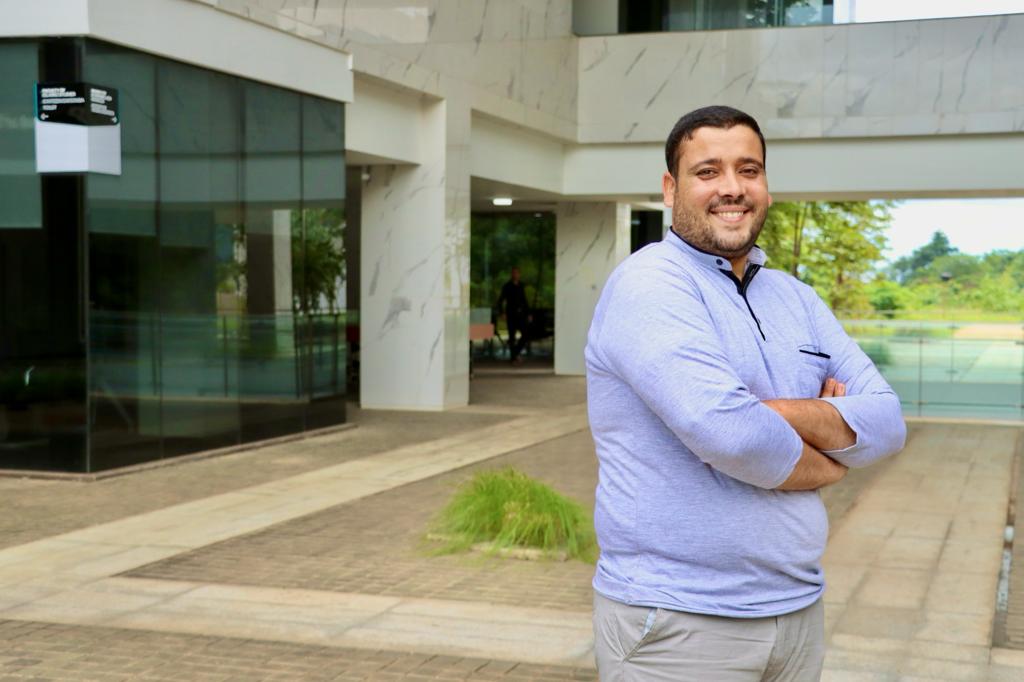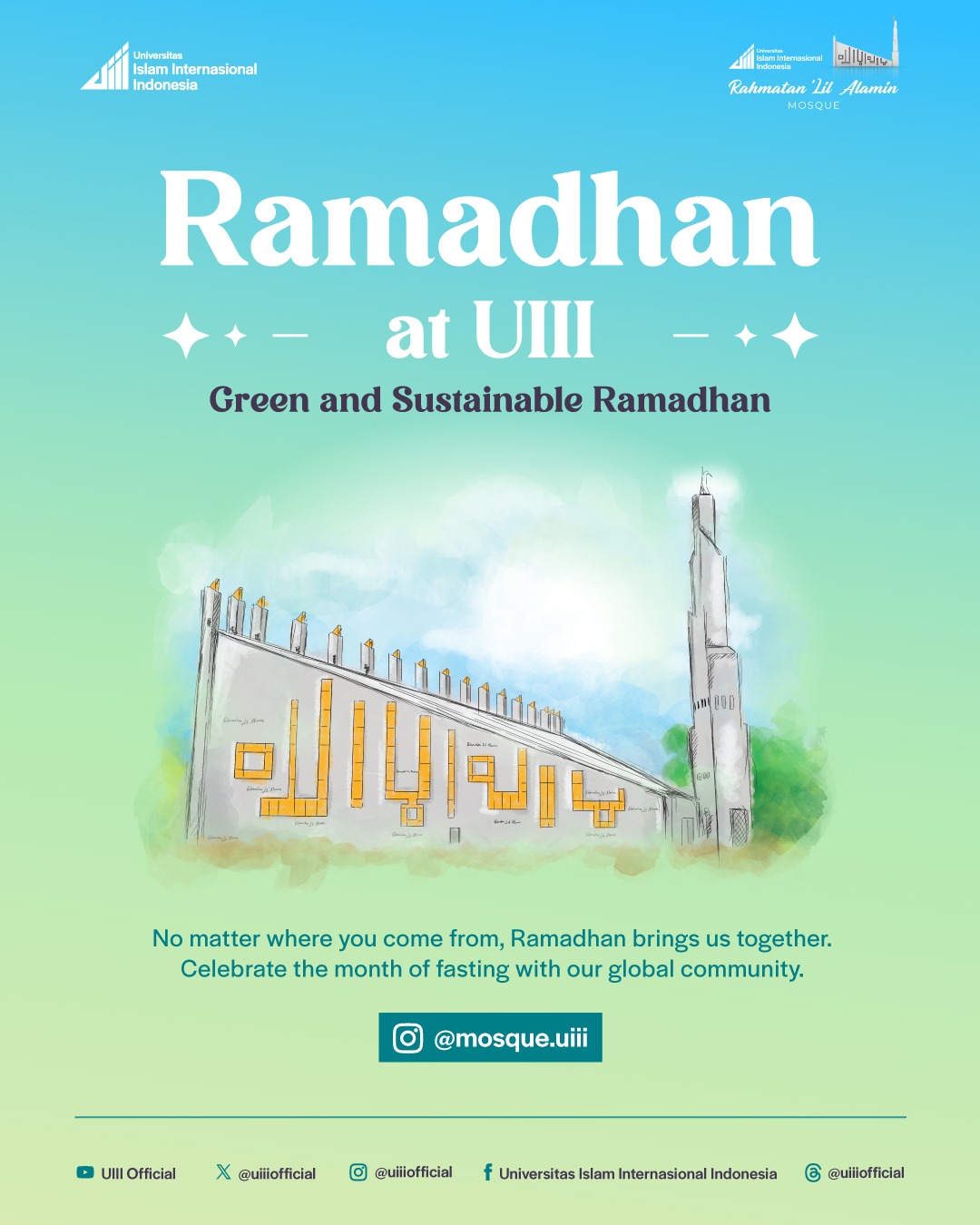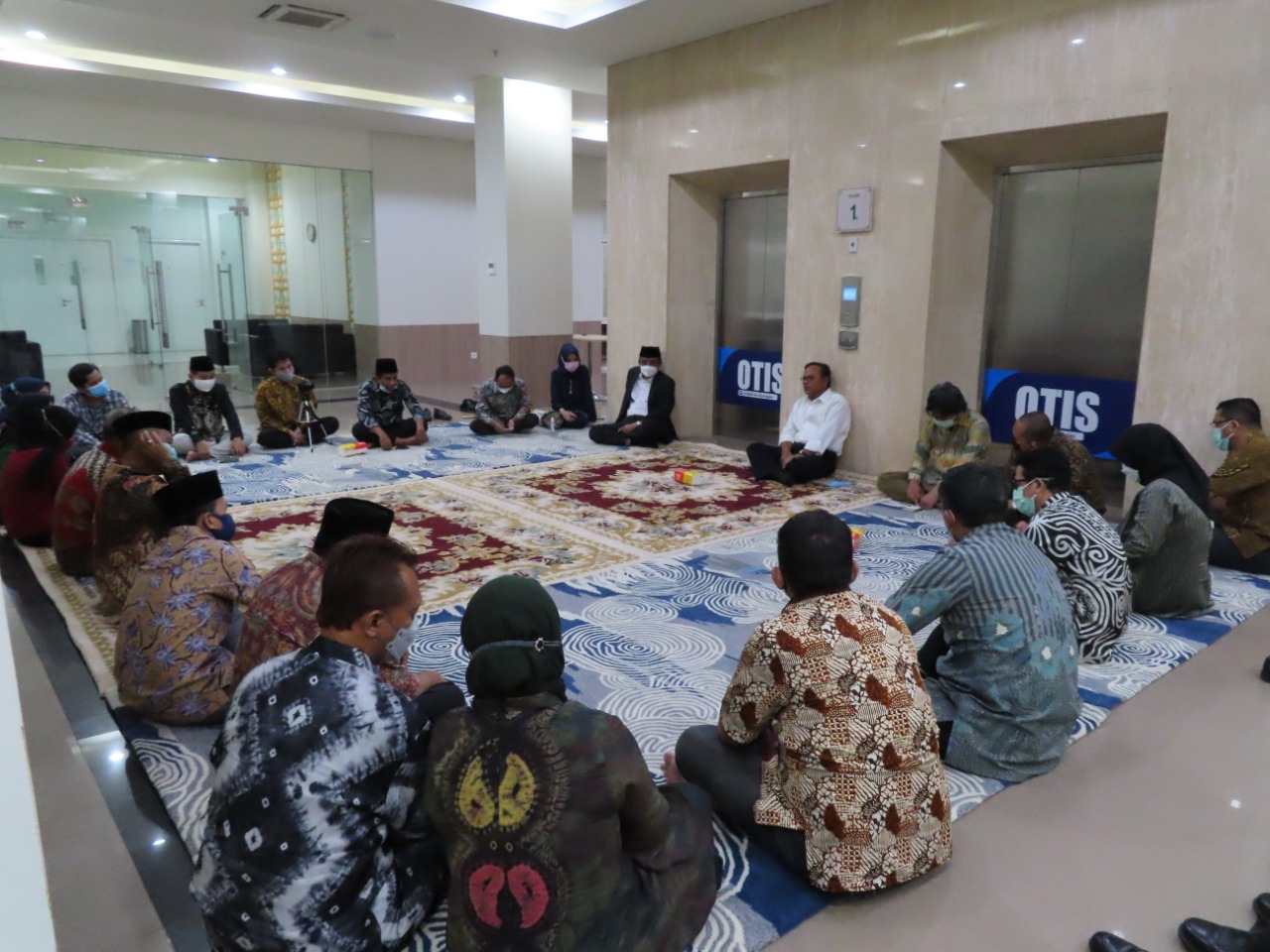International Students' Experience of Sahur at UIII
April 10, 2023Contributors: Maroof Ahmed | Editor: Supriyono

With hundreds of international students currently living both in the dormitory or in housing facilities outside the campus, the Universitas Islam International Indonesia (UIII) becomes a place where it teaches its students a sense of independence whilst also promoting cultural understanding, especially during the Sahur time.
Sahur is a predawn meal that is consumed by Muslims during Ramadhan, which for many, becomes the moment of family gathering before they finally hold their urge for food for the whole day until sunset.
Staying away from their families and home, UIII international students used the sahur time in quite different ways. A student from Spain, Firdous, admitted that preparing Sahur in the dorm is a totally different experience compared to what she had in her home country.
“At home, I have the support of my mother, who usually makes a more elaborate, rich, and varied sahur [meals]. So, it is more difficult for me now that I am independent,” she said, whilst admitting that being away from her family strengthened her independence and self-reliance.
Likewise, Mansoor from Afghanistan highlighted the same narrative, saying that he had to adapt to a simpler routine and different time zone in the dormitory. “During Ramadhan [here], I wake up around 3 a.m. [for Sahur]. The time difference between my country and Indonesia is 3 hours,” said Mansoor.
Given that he had to focus on his studies, Mansoor added that sometimes he ordered food from outside, highlighting the importance of managing time during Ramadhan.
Meanwhile, Iqra from Canada pointed out the different nature of Sahur between Indonesia and her country, saying that she found the community announcements and adhan for Fajr coming from the local mosques in Indonesia as something unique that she could not find in her country, Canada.
“The difference between Sahur in Canada and Indonesia is that in Canada, depending on the season, the time of Sahur changes. In the summer, Sahur is very early, while in the winter, Sahur occurs much later. Yet, in Indonesia, there are people who make an announcement to remind people in the community to wake up for Sahur,” said Iqra who chose to live outside the campus with her family.
These varying practices enrich the Ramadhan experience for international students, fostering a greater understanding of Indonesia’s traditions and customs. These differences in Sahur practices also open a window for students to learn about and appreciate each other’s cultures.
As international students navigate the challenges of preparing Sahur in a dormitory setting, they not only grow spiritually but also develop valuable life skills and a deeper appreciation for diverse cultures. The shared experiences of Sahur in the UIII dorm highlight the potential for Ramadhan to serve as a learning opportunity, fostering cultural understanding and personal development.
- UIII Extends Application Deadline for 2025 International Admissions
- What Does Eid al-Fitr Mean for the UIII Academic Community?
- UIII PhD Scholar Ararat Kostanian Delivers Lecture at Armenia's Yerevan State University
- Swedish Ambassador to Indonesia Applauds UIII’s Vision, Explores Future Collaboration
- Depok Mayor Supports UIII as the Green Lung of Depok and Beyond
- Depok Mayor Pledges to Build Performance Hall at UIII
- New Parking Facility Launched, Part of UIII-Sentra Medika Hospital Partnership
- Yogyakarta’s UII Won 1st FisFastFest’s Clash of Campuses
- Vice Minister of Religious Affairs Praises UIII as a Global Hub for Islamic Education
- Hurray!! UIII Wins Football Championship


